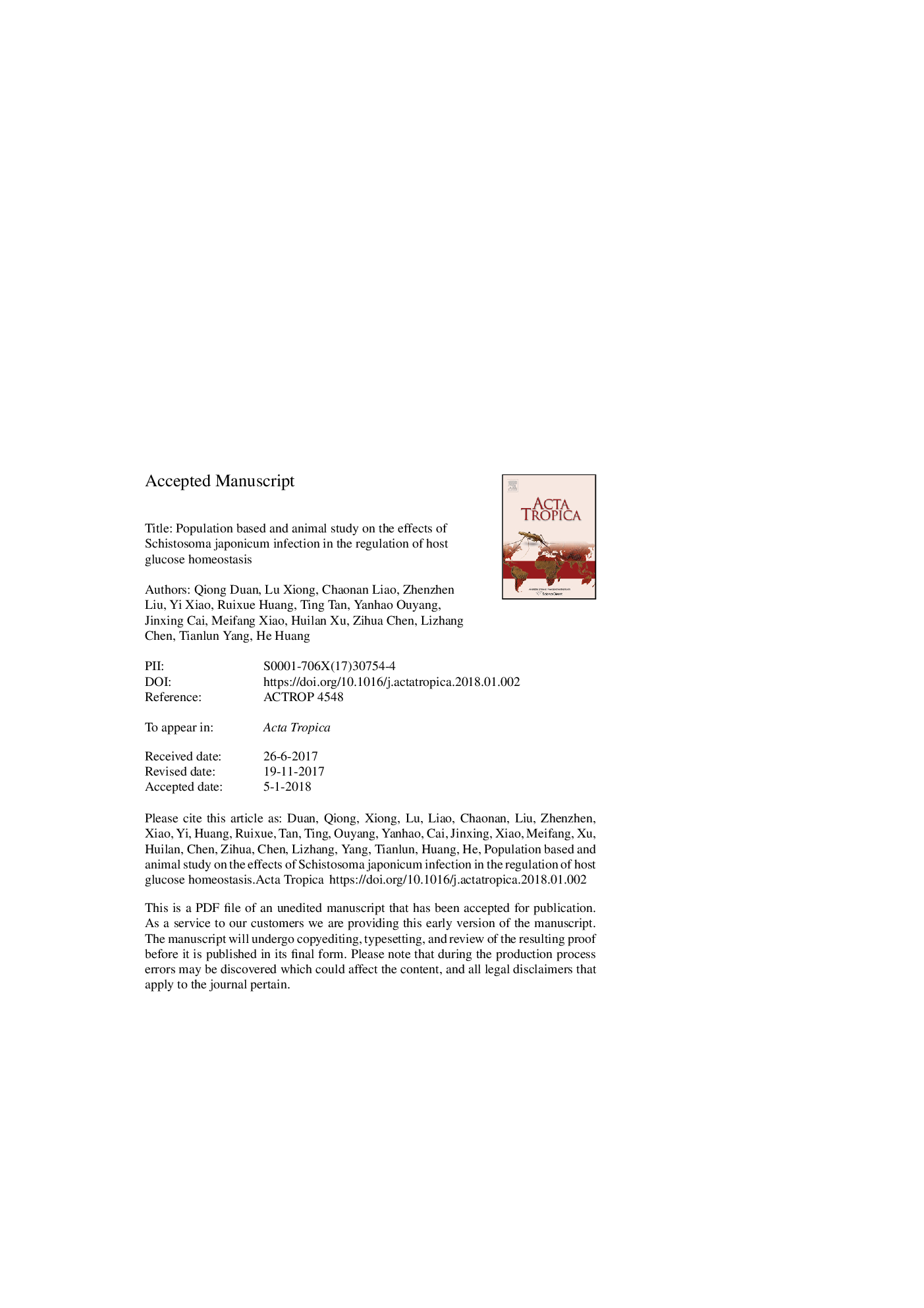| Article ID | Journal | Published Year | Pages | File Type |
|---|---|---|---|---|
| 8744381 | Acta Tropica | 2018 | 19 Pages |
Abstract
Although parasitic infection affects the glucose homeostasis of mice, only few studies have integrated epidemiological and animal data to determine the effect of Schistosoma japonicum infection on mice metabolism. The current study assessed the effects of S. japonicum infection on blood glucose and other metabolic parameters in both patients and animal models of chronic schistomiasis. A total of 2183 patients with chronic schistosomiasis and age- and gender-matched individuals without schistosomiasis (nâ¯=â¯1798) were enrolled in this study. Fasting blood glucose and other metabolic parameters, including body mass index (BMI) and serum triglyceride and total cholesterol, were compared between the two groups. Mice infected with S. japonicum were used to test the effects of the parasite on glucose tolerance. We found that chronic schistosomiasis patients had significantly lower BMI and fasting blood glucose, serum triglyceride, and total cholesterol levels than non-schistosomiasis individuals. In the animal studies, both bisexual and unisexual S. japonicum infection improved glucose tolerance in wild-type mice. Additionally, S. japonicum-infected ob/ob mice, a model that spontaneously develops obesity and diabetes, also had decreased body weight and improved glucose tolerance. We further observed that S. japonicum-infected mice had lower inflammatory gene expression in the visceral white adipose tissue than the control mice. Collectively, our results demonstrated that S. japonicum infection improved glucose tolerance and other metabolic parameters both in human and animals. Downregulated inflammatory gene expression due to S. japonicum infection might be among the mechanisms for the improved glucose tolerance.
Related Topics
Life Sciences
Immunology and Microbiology
Parasitology
Authors
Qiong Duan, Lu Xiong, Chaonan Liao, Zhenzhen Liu, Yi Xiao, Ruixue Huang, Ting Tan, Yanhao Ouyang, Jinxing Cai, Meifang Xiao, Huilan Xu, Zihua Chen, Lizhang Chen, Tianlun Yang, He Huang,
